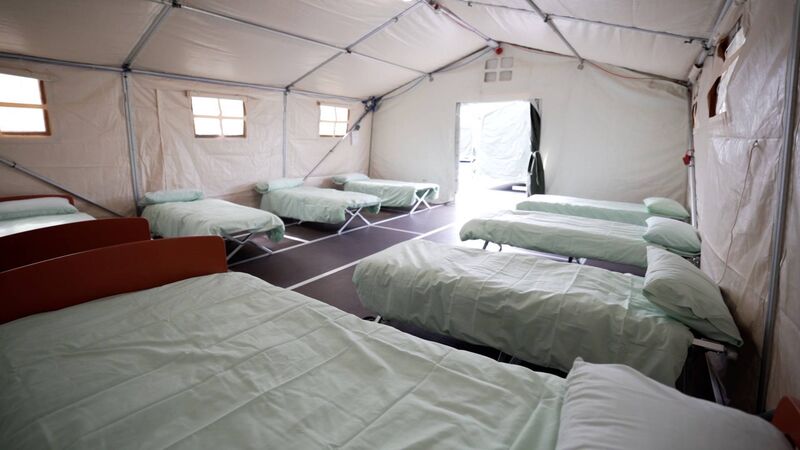Taoiseach: Coping with Ukraine refugee crisis is 'very, very challenging'

Bedding at the Gormanstown army camp in Co Meath. Picture: Government Information Services
Taoiseach Micheál Martin has said coping with the Ukraine refugee crisis is “very, very challenging” given the scale of numbers fleeing the war.
Speaking in Donegal, Mr Martin said there has been a surge in people from Ukraine seeking shelter as well as an increase in people from other conflict zones seeking international protection.














